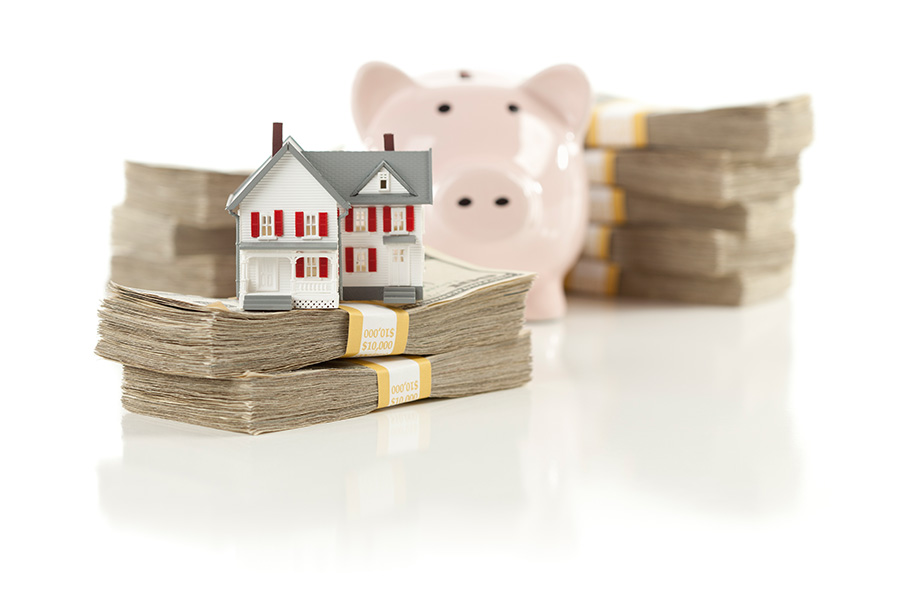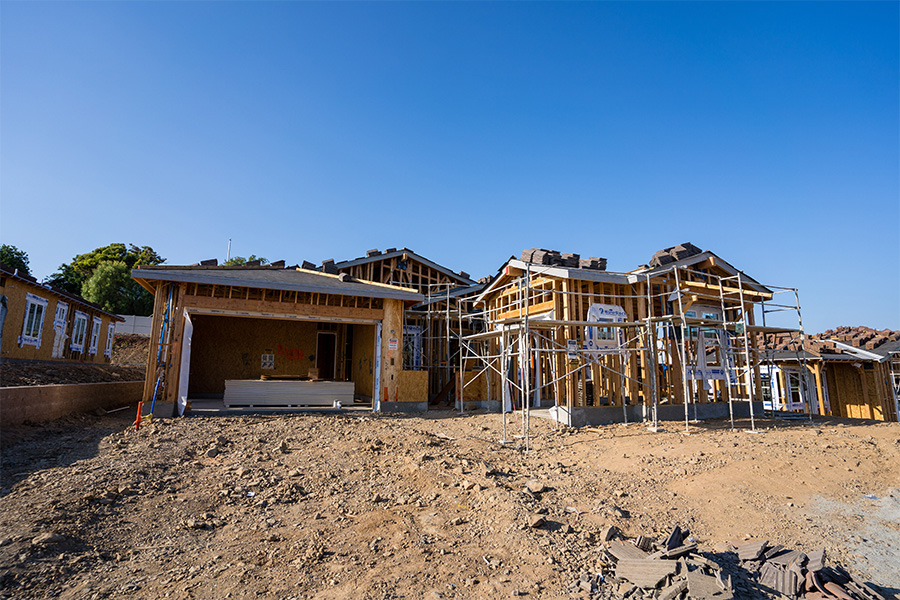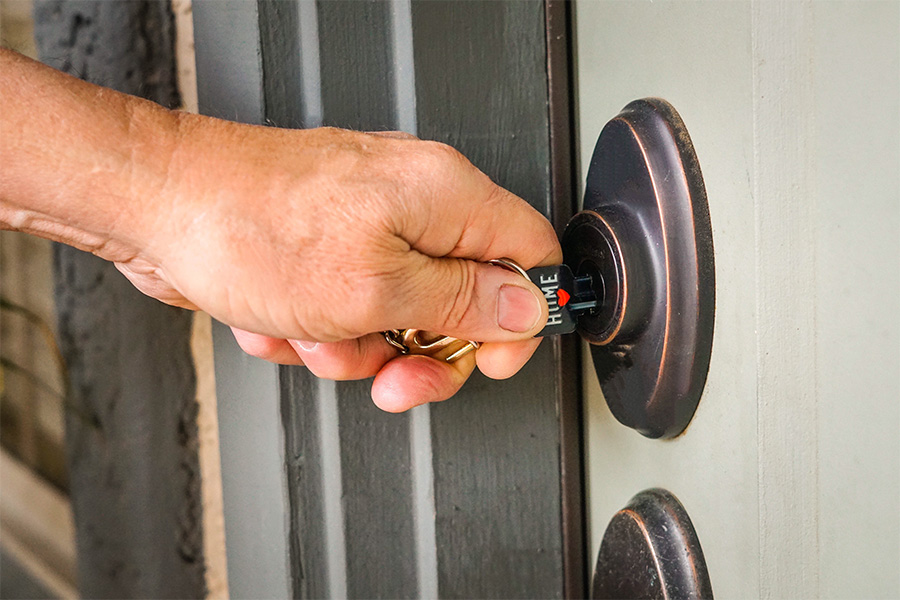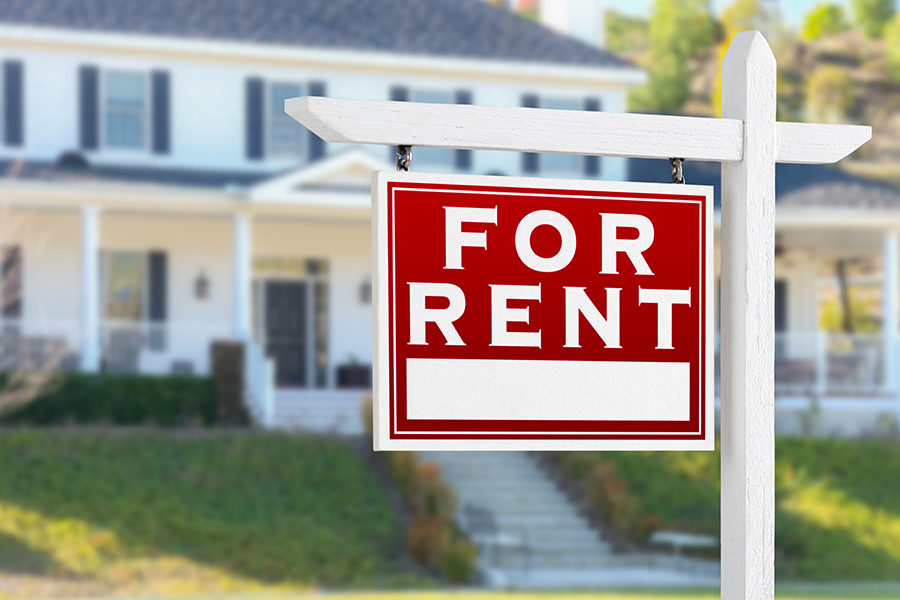Our Blog
Recent:

Turning Your Dream of Homeownership into Reality
Overcoming Challenges as a First-Time Homebuyer
Purchasing your first home is an exciting decision that can bring about positive life changes. However, first-time homebuyers face various obstacles in today's market, including limited inventory, rising home prices, escalating rents, and high student debt loads, as reported by the National Association of Realtors (NAR).
Utilize First-Time Homebuyer Programs to Save Money
The initial costs and fees associated with homeownership can often pose a significant hurdle for first-time buyers. However, there are numerous first-time homebuyerprograms, both public and private, designed to make homeownership more accessible and affordable. These programs offer benefits such as lower mortgage rates, down payment assistance, and tax incentives. Many states and local governments provide down payment or closing cost assistance through low-interest-rate loans, deferred loans, or even forgivable loans (grants). By exploring these programs, you can reduce your upfront expenses and make homeownership more achievable.
Explore All Housing Possibilities Due to Low Inventory
The current housing market favors sellers, resulting in limited inventory to meet the high demand from buyers. To increase your chances of finding a suitable home, consider exploring alternatives to traditional single-family houses, such as condominiums (condos) and townhomes. Condos are often more affordable than standalone houses and come with lower insurance costs. While they may have smaller living spaces, they provide an opportunity to enter the realm of homeownership and build equity. Moreover, condos often require less maintenance, as external upkeep, landscaping, and some internal maintenance are typically covered by the condo association. By considering these housing options, you can expand your choices and find a home that fits your budget and needs.
Partner with a Trusted Real Estate Agent for Success
To ensure a successful homebuying journey, especially as a first-time buyer, it's crucial to work with a knowledgeable and reliable real estate agent. They can guide you through the homebuying process, provide valuable insights about your local market, help you identify suitable options, and assist you in making competitive offers. By having an expert on your side, you can navigate the challenges of the market more effectively and increase your chances of achieving your homeownership goals.
Conclusion
Although the current housing market presents challenges for first-time homebuyers, there are strategies to overcome them and realize your dream of homeownership. By taking advantage of first-time homebuyer programs, exploring various housing options, and partnering with a trusted real estate agent, you can enhance your chances of success and turn your homeownership aspirations into reality.
5-31-2023

Is Now the Best Time to Sell Your Home
Important Considerations for Home Sellers
If you're contemplating whether this is the right moment to sell your home, there are several crucial factors that warrant your attention. By taking these aspects into account, you can make an informed decision that maximizes your potential gains.
Limited Inventory and Seller's Advantage
Currently, the housing market experiences a scarcity of available homes for sale. This situation provides a significant advantage to sellers. With fewer options on the market, prospective buyers are compelled to pay greater attention to any properties listed for sale. This increased competition can work in your favor, potentially driving up the value of your home.
Expert Consensus: A Great Time to Sell
Economists from reputable organizations such as the National Association of Realtors (NAR), CoreLogic, and Zillow are unanimous in their agreement: now is an opportune time to sell. Desirable properties frequently receive multiple offers, while prices continue to rise in many areas. By capitalizing on these favorable conditions, you can secure a favorable return on your investment.
The Path to a Successful Selling Experience
Keep These Facts in Mind
When contemplating listing your house, it's vital to bear in mind the aforementioned facts. Understanding the current market dynamics and expert opinions will aid you in making an informed decision. Now is an excellent time to sell, considering the advantages presented by the limited inventory and the consensus among industry professionals.
Consult a Real Estate Expert
To ensure you make the best possible move, seek the guidance of a seasoned real estate expert. Their experience and knowledge will provide valuable insights into market trends and pricing strategies, empowering you to make sound decisions. Take advantage of their expertise and leverage all the available resources to maximize your chances of success.
The Benefits of Acting Now
It is highly recommended that home sellers take advantage of the current market conditions by listing their property promptly. Doing so unlocks a range of benefits that can enhance your selling experience:
Multiple Offers on Desirable Properties
The limited inventory and increased buyer demand mean that desirable properties often attract multiple offers. This competitive environment can lead to higher selling prices and more favorable terms for you as a seller.
Competitive Prices and Rising Values
In many areas, home prices continue to rise, further boosting the potential return on your investment. By acting now, you position yourself to capitalize on these favorable market trends and secure a more substantial financial gain.
By recognizing the advantages presented by the current market conditions, you can make an informed decision that aligns with your unique situation and goals. To explore your selling options and embark on a successful journey, don't hesitate to get in touch with a qualified real estate professional today!
5-29-2023

Homeownership: Discover the Joy, Community, and Freedom of Owning Your Home
Homeownership is more than just owning a property; it's an experience that instills a sense of achievement, happiness, and pride. As we celebrate National Homeownership Month this June, it's an opportune moment to reflect on the holistic benefits that come with owning a home.
While the financial rewards of homeownership are well recognized, the non-financial benefits are equally profound, transforming a house into a nurturing environment that you can truly call home.
Boosting Happiness and Fulfillment
Homeownership is closely linked to mental health and overall well-being. Gary Acosta, CEO and Co-Founder at the National Association of Hispanic Real Estate Professionals (NAHREP), affirms the emotional and psychological perks that homeownership provides for an individual's health and self-esteem. Likewise, Habitat for Humanity acknowledges the role residential stability plays in enhancing life satisfaction and promoting better physical and mental health. Therefore, owning a home can amplify your psychological wellness, creating a sense of happiness and fulfillment.
Fostering Community Engagement
Your home is your gateway to community engagement. As homeowners tend to dwell in their homes for longer periods compared to renters, they have ample time to form substantial relationships with their neighbors. Acosta highlights that homeowners are often more involved in their local communities, nurturing a deeper sense of belonging. Undeniably, investing time and energy in your local area naturally motivates you to contribute positively to its development.
Customizing Your Personal Space
Owning a home gives you the freedom to mold your living space according to your personal style and preferences. Unless there are specific homeowner's association guidelines to adhere to, you're at liberty to bring about any modifications, from minor enhancements to significant renovations. As Investopedia suggests, the joy of owning your little corner of the world, knowing you can remodel, paint, and decorate it to your heart's content, is unparalleled. While renting may restrict your creative liberties, homeownership encourages you to resonate your individuality through your living space, establishing a stronger bond with your home.
In Conclusion
Homeownership paves the way for a life enriched with satisfaction and happiness. If you're contemplating the idea of owning a home and want to understand all it has to offer, let's connect and begin this transformative journey.
5-26-2023

Why Buying a Vacation Home Outshines Renting This Summer
Looking for the perfect summer getaway? Wondering whether to rent or buy? Well, let me tell you why buying a vacation home beats renting one this summer. As homeowners, you can have the freedom to escape whenever you please, with a place that's truly yours. No more searching for rentals or dealing with last-minute cancellations. With your own vacation home, you can enjoy the ultimate sense of liberation. And if you need assistance in finding the perfect property, a real estate agent can help you navigate the market and make the best investment decision. So, don't hesitate to take advantage of these reasons and consider buying your own vacation home instead of staying at a hotel.
But it's not just about convenience. Investing in a second home today holds long-term potential for homeowners. Not only will you have a place to create lasting memories with loved ones, but also an asset that could appreciate over time. It's like making memories while building wealth simultaneously with the help of a real estate agent.
So why settle for temporary accommodations when you can secure your very own slice of paradise? Say goodbye to the hassle and uncertainty of renting, and say hello to the joys of homeownership. Embrace the investment opportunity and start making unforgettable memories in your dream vacation home this summer. Whether you're hosting guests or considering a rental contract, owning a vacation home brings tax benefits.
Now is the time to invest in your future by securing a contract for your summer vacation. Homeowners can maximize their happiness and minimize their taxes all at once!
Advantages of owning a vacation home over renting
Owning a vacation home offers numerous benefits for guests that surpass the advantages of renting. From building equity to enjoying customization options, here's why homeownership wins for guests.
-
Build equity and potentially earn rental income: When you own a vacation home, you have the opportunity to build equity over time. Instead of throwing away money on rent, your monthly payments contribute towards ownership. Plus, if you choose to rent out your property when you're not using it, you can generate extra income.
-
Customize your vacation home to suit your preferences: Unlike rented properties where modifications are limited or even prohibited, owning a vacation home allows you to personalize it according to your taste and needs. Paint the walls in vibrant colors, install that dream kitchen, or create a cozy outdoor space - the possibilities are endless.
-
Have the flexibility to visit anytime without worrying about availability: With a vacation home at your disposal, there's no need to fret over booking dates or availability. You can spontaneously pack up and head off whenever the mood strikes. Enjoy last-minute getaways or plan extended stays without any hassle.
-
Potential tax benefits and deductions with homeownership: Homeownership often comes with tax advantages that renters miss out on. Depending on local regulations and personal circumstances, you may be eligible for deductions like mortgage interest payments or property taxes—saving you money in the long run.
Investing in a vacation home brings financial security through equity while offering unparalleled freedom and customization options. Say goodbye to renting limitations and embrace the perks of being a homeowner this summer!
Benefits of owning a vacation home during summer
-
Escape to your favorite destination whenever you want. Imagine having the freedom to pack up and head to your dream summer vacation spot at a moment's notice. With your own vacation home, you can escape the hustle and bustle of everyday life and enjoy quality time with loved ones in a place that brings you joy.
-
Save money on accommodation costs in the long run. Instead of spending a significant amount on renting a vacation home every year, investing in your own property can lead to substantial savings over time. You'll have the peace of mind knowing that you have a place to stay without worrying about rising rental prices or availability during peak seasons.
-
Enjoy consistent comfort and familiarity during summer vacations. Having your own vacation home means having a space tailored to your preferences. You can decorate it just the way you like, ensuring that every visit feels like coming back to your personal oasis. No need to adjust to new surroundings each time; instead, revel in the comfort and familiarity of your own retreat.
-
Take advantage of off-season periods for personal use or rentals. One of the perks of owning a vacation home is being able to utilize it even when it's not peak vacation season. During off-season periods, you can make use of the property for weekend getaways or longer stays, enjoying uninterrupted relaxation at reduced rates. Alternatively, if you're not using it personally, consider renting out your vacation home during these times to generate extra income.
Owning a vacation home offers numerous benefits for those seeking memorable summer vacations filled with quality time, comfort, and flexibility. By investing wisely in your own piece of paradise, you gain the freedom to escape whenever you desire while saving money in the long run – all while enjoying consistent comfort and making the most out of both peak and off-season periods.
So this summer, why settle for renting when buying a vacation home gives you so much more? Take the plunge and create lasting memories in your very own slice of paradise.
Pros and Cons of Buying versus Renting a Vacation Home
Pros
-
Investment potential: When you buy a vacation home, you have the opportunity to benefit from its potential appreciation in value over time. It can be a smart long-term investment that could provide financial returns in the future.
-
Freedom to personalize: Owning your own vacation home gives you the freedom to personalize it according to your tastes and preferences. You can make changes, renovations, and upgrades as desired without seeking permission from landlords or worrying about restrictions.
-
No dealing with landlords: Say goodbye to renting headaches! With your own vacation home, you won't have to deal with unpredictable landlords or worry about sudden rent increases. You are in control of how you use and enjoy your property.
Cons
-
Initial high upfront costs: One of the downsides of buying a vacation home is the significant upfront costs involved. This includes making a substantial down payment and covering maintenance expenses. It's important to consider these financial commitments before taking the plunge.
-
Responsibility for property management: As an owner, you bear the responsibility for managing and maintaining your vacation home. This means handling upkeep tasks, repairs, and any unexpected issues that may arise. It requires time, effort, and potentially additional expenses.
-
Limited flexibility: If you love exploring different destinations each year, owning a vacation home may limit your flexibility. Unlike renting where you can easily switch locations every summer, owning ties you down to one specific property. Consider whether having a fixed location aligns with your travel preferences.
Considerations when choosing a vacation home
Location
Evaluate the vacation homes based on their proximity to attractions, amenities, and accessibility options. Look for properties that are close to popular destinations and activities. Consider whether the location offers easy access to beaches, hiking trails, or other recreational spots.
Budget
Determine your budget for buying a vacation home. Take into account mortgage payments, taxes, insurance, and other expenses associated with owning a second home. Ensure that you can comfortably afford these costs without straining your finances.
Rental Potential
If you are considering the vacation home as an investment opportunity, assess its rental potential. Look for properties in high-demand areas where tourists frequently visit. Research rental rates in the area to determine if it can generate a good income when you're not using it.
Lifestyle Fit
Consider how well the location aligns with your interests and preferred activities. Think about the type of destination or place that suits your lifestyle. If you enjoy water sports or outdoor adventures, look for vacation homes near lakes or mountains. If you prefer cultural attractions or shopping opportunities, choose a property close to vibrant cities.
When choosing a vacation home this summer, keep these considerations in mind: location, budget, rental potential, and lifestyle fit. By carefully evaluating these factors and finding a property that meets your needs and preferences, you can make an informed decision about buying a vacation home instead of renting one.
Professional assistance in finding the perfect vacation home
Looking to buy a vacation home this summer? Don't navigate the market alone - seek professional assistance to ensure you find the perfect property. Here's why engaging real estate agents specializing in vacation properties is a smart move:
-
Expert guidance: Real estate agents who specialize in vacation homes have extensive knowledge of the market and can provide valuable insights throughout your search. They understand the unique considerations such as location, rental potential, and amenities.
-
Online resources: In addition to working with an agent, take advantage of online platforms and resources dedicated to vacation home listings. These websites provide a wide range of options and allow you to filter based on your preferences, making it easier to find properties that match your criteria.
-
Word-of-mouth recommendations: Don't underestimate the power of recommendations from friends, family, or colleagues who have purchased their own vacation homes. They can share their experiences and offer advice on finding reputable agents or uncovering hidden gems in desirable locations.
-
Renting out your property: If you plan to rent out your vacation home when you're not using it, consider hiring a property management company. These professionals can handle everything from marketing your rental to coordinating guest bookings and ensuring proper maintenance. With their expertise, you can maximize your income while minimizing stress.
By utilizing professional services and resources like real estate agents specializing in vacation properties, online platforms for listings, recommendations from others who have purchased vacation homes, and property management companies for renting out your property, you'll be well-equipped to find the perfect vacation home that beats renting one this summer. So start exploring the market today!
Remember: when it comes to buying a vacation home that meets all your needs and desires while providing potential rental income opportunities – professional assistance is key!
Why buying a vacation home is the superior choice
In conclusion, buying a vacation home offers numerous advantages and benefits over renting one, especially during the summer season. By owning a vacation home, you have the freedom to personalize your space and create lasting memories with family and friends. It provides a sense of stability and eliminates the uncertainties associated with renting.
Owning a vacation home allows you to enjoy the benefits of having your own private retreat whenever you desire. You can escape from the hustle and bustle of daily life and relax in a familiar environment that feels like home. Furthermore, it offers financial advantages such as potential tax deductions and the opportunity for rental income when you're not using it.
When choosing a vacation home, there are important considerations to keep in mind. Factors such as location, amenities, and proximity to attractions should be carefully evaluated to ensure it meets your specific needs. Seeking professional assistance can greatly simplify this process by providing expert guidance and access to exclusive listings.
To make an informed decision about purchasing a vacation home, consider the following frequently asked questions:
FAQs
Q: Can I afford to buy a vacation home?
A: Assess your financial situation and consult with a mortgage lender to determine if buying a vacation home aligns with your budget.
Q: What are the ongoing costs associated with owning a vacation home?
Apart from mortgage payments, consider expenses like property taxes, insurance, maintenance fees, utilities, and potential management fees if you plan on renting out your second home as vacation rentals.
Q: How often will I be able to use my vacation home?
Evaluate how frequently you intend to visit your second home as this will impact its overall value for money.
Q: What happens if I no longer want or need my vacation home?
A: Understand the options available for selling or renting out your property if circumstances change in the future.
Q: Are there any restrictions or regulations regarding vacation home ownership?
A: Research local laws, homeowner association rules, and any rental restrictions that may apply to the area where you plan to purchase a vacation home.
By considering these questions and weighing the advantages of owning a vacation home, you can confidently make a decision that suits your lifestyle and financial goals. Take the leap and invest in your own slice of paradise this summer!
5-24-2023

Why An Expert Realtor is Your Key To Successfully Navigating Todays Unpredictable Housing Market
In the exciting journey of home-buying, a feeling of trepidation is often unavoidable, more so in today's highly competitive and unpredictable market environment. A limited inventory of homes for sale is fostering bidding wars and causing home prices to escalate, creating a challenging terrain for home buyers to navigate on their own.
This landscape brings the importance of having a professional real estate agent into sharp focus. Bankrate succinctly puts it, "Advice and guidance from a professional real estate agent can be invaluable, particularly amid a hot or unpredictable housing market." This wisdom holds particularly true in the current housing market scenario where buyers need expert assistance to find their dream homes.
The Role of a Real Estate Professional
A real estate agent's role extends far beyond simply connecting buyers with sellers. Here are some invaluable services a real estate professional can provide:
- Experience and Market Acumen: Real estate professionals are acutely aware of the current market trends, how they affect buyers, and how to overcome any emerging challenges. They can use their deep market understanding to help you make informed decisions.
- Education: Knowledge empowers you to make better decisions. An adept real estate advisor can effectively clarify market trends and help you comprehend what they mean for your specific situation, ensuring that you make decisions with confidence.
- Negotiations: A real estate advisor represents your best interests and provides invaluable support with the purchase agreement. They can also assist you in negotiating concessions from the seller if a home inspection reveals any issues.
- Contract Expertise: Real estate advisors can guide you through the complex world of disclosures and contracts mandatory in today's heavily regulated environment, ensuring a smooth transaction.
- Pricing and Making an Offer: Arguably the most nerve-racking part of the home-buying process is negotiating with the seller. A skilled agent can provide insights into what similar homes are selling for, thereby offering you a complete picture when deciding on your offer.
Perhaps this is why the National Association of Realtors' (NAR) latest Home Buyers and Sellers Generational Trends Report shows that 86% of recent buyers used an agent. As the NAR report mentions, "A great real estate agent will guide you through the home search with an unbiased eye, helping you meet your buying objectives while staying within your budget. Agents are also a great source when you have questions about local amenities, utilities, zoning rules, contractors, and more."
Choosing the Right Expert
The foundation of the realtor-client relationship is trust. Ensure that your chosen professional's advice is dependable and trustworthy. While it's impossible for anyone to offer perfect advice, given the unpredictability of the market, a seasoned professional can provide the best possible advice based on the available information and circumstances.
They'll represent your interests throughout the process and provide the vital knowledge you need to make confident decisions. You deserve nothing less.
Conclusion
Having a professional real estate advisor by your side in today's complex housing market is vital. They offer invaluable guidance and advice, smoothing the path for your home buying journey. If you're planning to buy a home this year, let's connect and ensure that you have the best possible support to guide you along the way.
5-22-2023

Unleashing a Surge of Buyer Demand with a Powerful Job Market
As we embrace the warmth of spring, we're also witnessing an unexpected heat in the housing market. Despite the affordability issues and limited housing inventory, buyer demand is robust and intensifying.
How do we know this? One of the most compelling indicators is the surge in showing traffic. According to the recent ShowingTime Showing Index, which measures the frequency of prospective buyers visiting properties, more individuals are actively exploring homes than before the pandemic. Even if the current level of traffic doesn't match the buying frenzy of the past few years, it's not far behind. The housing market is bustling with potential buyers.

So, the question arises, why is buyer activity so vigorous at a time when mortgage rates are higher than last year?
The Job Market Is Thriving
Despite concerns about inflation, the Federal Reserve raising the Federal Funds Rate, and media chatter about a potential recession, the current job market is surprisingly robust. Moreover, it appears to be strengthening.

The Bureau of Labor Statistics (BLS) reveals an increase of 88,000 jobs in April compared to March, surpassing expert predictions. This healthy growth signals a thriving job market.
Unemployment is Nearing Record Lows
When the Federal Reserve began combating inflation, many anticipated a rise in the low unemployment rates we've witnessed in recent years. Yet, contrary to these expectations, the unemployment rate dropped to 3.4%, the lowest in half a century.

This trend indicates that many people are consistently employed and financially stable, positioning them to seriously consider homeownership.
What Does This Mean for Home Sellers?
If you're contemplating selling your house this year, this news should sound like a symphony to your ears. A market teeming with active buyers increases interest in your home when inventory is scarce. To embark on this journey, an experienced real estate agent is your best ally. They can assist with pricing your house appropriately, handling offers, negotiating effectively, and reducing your overall stress and hassle.
In Conclusion
The spring housing market is abuzz with buyers seeking homes that meet their needs. The robust job market and low unemployment rates are providing many people with the steady income needed for homeownership. If you're ready to make a move and leverage this active market, let's connect and get your home ready for its next owner.
5-19-2023

Unlocking Your Wealth: Leverage Your Home Equity to Reach Your Goals
Homeownership has long been lauded as one of the best ways to build wealth and financial stability. Part of the magic of owning a home lies in the steady accumulation of equity - the monetary difference between the market value of your property and the outstanding amount on your mortgage. Yet, the concept of equity remains nebulous to some homeowners.
At its most basic, equity is akin to the portion of your home that you 'truly' own. As highlighted by the National Association of Realtors (NAR), your housing wealth increases two fold - through property value appreciation and via the regular repayment of your mortgage. Over time, these increments converge into a substantial sum - a treasure chest of sorts that can be utilized to propel you towards your objectives.
Harnessing the Power of Equity
Equity is more than just a static number - it's a dynamic financial tool that can be harnessed to serve your specific goals. Perhaps your family has outgrown the confines of your current home, necessitating a move to a more spacious residence. Or maybe you're in the opposite situation, residing in a house that feels too vast after your children have flown the nest. Regardless of your circumstances, your accrued home equity can facilitate a seamless transition to your next dwelling. This sum could form a significant portion, or possibly the entirety, of the down payment on your next home.
The recent survey by Realtor.com reveals that the quantum of equity amassed by homeowners today might be a delightful surprise. This optimistic outlook can be attributed to substantial equity gains driven by home value appreciation over the years.

CoreLogic's Chief Economist, Selma Hepp, reinforces this sentiment by stating that despite slight regional home price declines late in 2022, U.S. homeowners have an average equity of $270,000 - a whopping increase of nearly $90,000 since the start of the pandemic.
The Importance of an Experienced Real Estate Agent
To fully leverage your equity in the current housing market, partnering with a seasoned real estate professional can be game-changing. A skilled real estate agent can help you determine the accurate value of your home, thus providing a clear gauge of the equity at your disposal.
As highlighted in a recent article from Bankrate, a professional agent can deliver a realistic estimate of home prices in your region and help you set an optimal price for your current property. Using this information, you can ascertain the extent of your equity, calculate potential net proceeds from a sale, and plan how to channel this wealth towards the down payment and closing costs of your new home.
Having a firm grasp of your equity status is critical when deciding whether to buy or sell a property. The complex journey of selling your house can be made smoother with the guidance of a seasoned real estate agent.
In Conclusion
In today's market, a significant number of homeowners are sitting on a substantial nest egg in the form of home equity - and you could be one of them. Reach out to us today so that we can help you estimate your current equity position and strategize how to best employ this wealth for your next home purchase.
5-17-2023

Home Renovations and Improvements: Adding Value to Your Home
Adding value to your property through home renovations and improvements is an excellent way to increase the worth of your home. There are many ways to renovate and improve your home, from simple cosmetic changes to more extensive structural updates. One popular trend in recent years has been the integration of smart home technology into homes. Smart home technology can increase the value of a property by up to 5%, according to experts.
Smart home technology includes features such as smart lighting, sound systems, thermostats, energy-efficient lighting, security systems, and more. These features not only make life easier for homeowners but also appeal greatly to potential buyers. Homes equipped with smart technology tend to sell faster than those without it.
Outdoor spaces that feature smart lighting and sound systems are highly desirable among potential buyers. They provide an excellent space for entertaining guests or relaxing after a long day at work. Additionally, incorporating brick features into outdoor spaces can add a touch of elegance and sophistication.
Smart thermostats and energy-efficient lighting can save homeowners money on utility bills while also making the property more attractive to buyers. Energy-efficient homes are becoming increasingly popular as people become more environmentally conscious.
Smart security systems provide peace of mind for homeowners while also being a selling point for potential buyers. Knowing that their family is safe and secure is essential for many homeowners when considering purchasing a new home.
Smart home technology can create a more comfortable living space by allowing homeowners to control their environment with ease. With just the touch of a button or voice command, they can adjust the temperature, turn on/off lights or even lock doors remotely.
Understanding the Importance of Choosing the Right Home Improvement Projects for Increased Property Value
Upgrading your home is an excellent way to increase its value. However, not all home improvement projects are created equal. Some upgrades have a more significant impact on your property's overall value than others. In this section, we will discuss the importance of choosing the right home improvement projects for increased property value.
Garage Door Replacement
Your garage door plays a crucial role in your home's curb appeal. Replacing it can significantly increase your property's value and make it more attractive to potential buyers. According to the 2020 Cost vs. Value Report, garage door replacement has an average return on investment (ROI) of 94.5%. This means that you can recoup almost all of the cost of replacing your garage door when you sell your home.
Entry Door Replacement (Steel)
The entry door is another essential component of your home's curb appeal. Replacing it with a steel door can provide added security and boost your property's overall value. Steel doors are durable, energy-efficient, and low-maintenance, making them an excellent investment for homeowners looking to improve their homes' aesthetics and functionality.
Siding Replacement (Fiber Cement/Vinyl)
Replacing your siding with fiber cement or vinyl can also significantly increase your property's value. These materials are durable, long-lasting, and low-maintenance, making them ideal for homeowners who want to improve their homes' appearance without spending too much time or money on maintenance.
Manufactured Stone Veneer
Adding manufactured stone veneer to your home's exterior can also boost its curb appeal and overall value. This upgrade gives your home a luxurious look without breaking the bank.
Power Washing
Power washing the exterior of your home is another simple yet effective way to improve its appearance and increase its value. This process removes dirt, grime, mold, mildew, and other debris from surfaces such as decks, patios, walls, driveways - enhancing their visual appeal.
High-End Front Porch or Upgraded Front Door
Finally, adding a high-end front porch or upgrading your front door can create an inviting entrance that will make a great first impression on visitors and potential buyers alike. These upgrades are relatively inexpensive but can have a significant impact on your property's overall value.

Exterior Upgrades That Add Value
Upgrades That Add Value: Garage Door Replacement
Replacing your garage door is one of the most cost-effective ways to add value to your property. Not only does it improve the overall appearance of your home, but it also enhances its security and energy efficiency. According to Remodeling Magazine's Cost vs. Value report, a garage door replacement has an average ROI of 94.5%.
When choosing a new garage door, consider the style and material that best complements your home's exterior. Steel doors are durable and low-maintenance, while wood doors offer a classic look but require more upkeep. Additionally, insulated doors can help regulate temperature and reduce noise.
Replacing Your Entry Door (Steel)
Your front entryway is the first thing guests see when they arrive at your home, so it’s important to make a good impression with a stylish and secure entry door. A steel entry door offers both durability and affordability, making it an excellent choice for homeowners looking to add value without breaking the bank.
In addition to being strong and weather-resistant, steel doors come in a variety of styles and finishes to suit any aesthetic preference. They also provide superior insulation compared to other materials like wood or fiberglass.
Siding Replacement (Fiber Cement/Vinyl)
Replacing old or damaged siding can dramatically improve the curb appeal of your home while also increasing its resale value. Fiber cement siding is a popular choice due to its durability, resistance to pests and fire damage, and low maintenance requirements.
Vinyl siding is another affordable option that comes in many colors and textures for customization options. Both fiber cement and vinyl siding options have an excellent ROI according to Remodeling Magazine's Cost vs Value report.
Manufactured Stone Veneer
Adding manufactured stone veneer can create an elegant look for your home's exterior while adding value at the same time. This upgrade provides texture and depth that will make your house stand out from others on the block.
Manufactured stone veneer is a cost-effective alternative to natural stone, and it's often more durable. This upgrade will also make your home more energy-efficient by providing an extra layer of insulation.
Power Washing the Exterior of Your Home
A simple power wash can go a long way in improving the appearance of your home's exterior. Over time, dirt, grime, and other environmental factors can cause your home to look dull and dingy. A power wash can remove these unsightly stains and restore your home's original beauty.
Deck Addition (Wood/Composite)
Adding a deck to your backyard is an excellent way to add value to your property while also creating a space for outdoor entertaining and relaxation. Wood decks provide a classic look that complements any style of home, while composite decks offer durability and low maintenance requirements.
High-End Landscaping
Finally, investing in high-end landscaping can be an effective way to add value to your property. Well-manicured lawns, colorful flower beds, and mature trees all contribute to the overall aesthetic appeal of your home's exterior.
Additionally, landscaping upgrades like hardscaping features such as patios or walkways can help define outdoor spaces and create areas for entertaining guests. According to a study by the National Association of Realtors, homeowners who invest in landscaping projects can expect an ROI between 100% - 200%.
Interior Updates That Add Value
Minor Renovations vs. Major Renovations
There are two types: minor and major. Minor renovations typically have a lower project cost than major renovations. However, major renovations may have a higher project cost, but they also have the potential for a higher return on investment. It's important to consider the cost of the renovation in relation to the value it will add to your property.
Small Updates with Big Impact
If you're looking for simple interior updates that can add value to your property without breaking the bank, small updates like fresh paint or new fixtures can make a big impact. For example, updating light fixtures or cabinet hardware in your kitchen can give it a modern look without having to completely remodel it. Adding crown molding throughout your living space is another easy update that adds elegance and sophistication.
Kitchen Remodeling
If you're considering a larger renovation project, updating your kitchen is one of the best ways to increase your property's value. According to Remodeling Magazine's 2021 Cost vs. Value report, a minor kitchen remodel has an average return on investment of 72%. This includes updating appliances, countertops, and cabinets while keeping the same layout.
Bathroom Remodeling
Another room worth considering for a renovation is your bathroom. A midrange bathroom remodel has an average return on investment of 62%, according to the same report by Remodeling Magazine. This includes updating fixtures, tile work, and adding features such as double sinks or a larger shower.
Reveal and Restore Hardwood Floors
If you have hardwood floors hidden under carpet or other flooring materials, revealing and restoring them can add significant value to your property. Hardwood floors are highly sought after by buyers because they are durable and long-lasting. Refinishing them can restore their natural beauty and make them look brand new again.
Upgrade Fixtures
Upgrading fixtures throughout your home is another easy way to add value. This includes updating faucets, light fixtures, and door handles. These small updates can make a big difference in the overall look and feel of your home.

Smart Home Technology: A Modern Investment That Can Boost Property Value
Investing in smart home technology is a modern way to boost your property's value. With the rise of technology, homeowners are looking for homes that offer convenience and comfort. Smart home technology can provide both, making it an attractive investment for those looking to add value to their property.
Save Money with Smart Home Technology
Smart home technology can help homeowners save money in the long run by avoiding costly repairs and maintenance. With smart devices, homeowners can detect problems early on and fix them before they become bigger issues. For example, a smart thermostat can detect when a furnace or air conditioner is not working efficiently, allowing the homeowner to address the issue before it becomes a major repair.
Increase Appeal with Smart Home Technology
Adding a home office or updating existing spaces with smart devices can increase the appeal of your house to prospective buyers, potentially increasing its resale value. A study by Homelight found that homes with outdoor space sell for 6% more than those without. By adding smart outdoor lighting or irrigation systems, you can create an inviting outdoor space that will attract potential buyers.
Cost-Effective Renovations with Smart Home Technology
Renovating a basement can be a cost-effective way to add living space and increase your home's value. By incorporating smart devices such as motion-sensor lighting or temperature control systems, you can create an energy-efficient and comfortable living space that will appeal to potential buyers.
Return on Investment with Smart Home Technology
The average return on investment for home renovations is around 70%, according to realtors. By investing in smart home technology, you not only increase your property's value but also make it stand out among other properties on the market.
Trusted Agents Can Help You Invest in Your Property
Homelight agents are experts in helping homeowners invest in their property through renovations and improvements. They understand what potential buyers are looking for and how best to showcase your property's unique features. With their guidance, you can invest in smart home technology that will increase your property's value and appeal to potential buyers.
Maximizing Energy Efficiency
Attic Insulation: Keeping Your Home Cozy and Saving Money
Upgrading your home with attic insulation is a smart investment that can pay off in the long run. Not only does it keep your home cozy during the winter months, but it can also save you money on energy bills. According to the US Department of Energy, adding insulation to your attic can save you up to 30% on heating and cooling costs.
When considering attic insulation, there are a few things to keep in mind. First, make sure you choose the right type of insulation for your needs. Fiberglass batts, blown-in cellulose, and spray foam are all popular options. Second, consider hiring a professional contractor who has experience installing insulation. A poorly installed insulation job could lead to mold growth or other issues down the line.
Window Replacement: Wood vs Vinyl
Replacing old windows is another popular way to improve energy efficiency in your home while also adding value. there are pros and cons for each option.
Wooden windows have a classic look that many homeowners love. They're also highly customizable and can be painted or stained to match any decor style. However, they require more maintenance than vinyl windows and need regular painting or staining to prevent rotting.
Vinyl windows are low-maintenance and come in a wide range of colors and styles. They're also typically less expensive than wooden windows. However, they may not offer as much customization as wooden windows do.
Siding Replacement: Fiber Cement vs Vinyl
Finally, replacing old siding is another way to add value while improving energy efficiency in your home. Two popular options for siding replacement are fiber cement and vinyl.
Fiber cement siding is durable and resistant to both fire and insects. It's also low-maintenance and can last for up to 50 years with proper care. However, it can be more expensive than vinyl siding.
Vinyl siding is affordable and comes in a wide range of colors and styles. It's also low-maintenance and easy to clean. However, it may not be as durable as fiber cement siding and can crack or warp in extreme temperatures.

Practical Tips for Undertaking Home Renovations and Improvements That Will Pay Off
Budgeting for Renovations: How to Plan and Finance Your Remodeling Project
Before embarking on a home renovation project, it's essential to plan your budget carefully. Here are some tips on how to budget for your remodeling project:
-
Determine the scope of your project: Decide what you want to accomplish with your renovation. Do you want to update a single room or remodel the entire house? Knowing the scope of your project will help you estimate costs more accurately.
-
Research costs: Do some research on the average cost of similar projects in your area. This will give you a ballpark figure of how much you can expect to spend.
-
Set priorities: Decide which aspects of the renovation are most important to you and allocate funds accordingly.
-
Factor in unexpected expenses: Leave some wiggle room in your budget for unexpected expenses that may arise during the renovation process.
-
Consider financing options: If you don't have enough cash on hand, consider financing options like home equity loans or lines of credit.
DIY Ideas: Simple Home Improvements You Can Do Yourself
If you're looking for ways to save money on home renovations, there are plenty of simple improvements that you can do yourself. Here are some DIY ideas:
-
Paint walls and cabinets: A fresh coat of paint can make a big difference in any room. Painting walls and cabinets is an easy and affordable way to update your space.
-
Install new hardware: Replacing old hardware with new knobs, handles, and fixtures is a quick and easy way to give your home a facelift.
-
Upgrade lighting fixtures: Upgrading lighting fixtures is another simple way to improve the look and feel of any room.
-
Add storage solutions: Installing shelves or organizing systems can help maximize storage space in small rooms like closets or bathrooms.
Project Returns on Investment: Which Renovations Will Pay Off?
When planning a home renovation project, it's important to consider which improvements will provide the best return on investment. Here are some renovations that typically offer a good ROI:
Minor vs. Major Renovations: Balancing Cost and Return on Investment
Choosing the right home improvement projects can significantly increase your property's value. However, it's essential to balance the cost of a renovation project with its potential return on investment. In this section, we'll discuss minor vs. major renovations and how they affect your property's value.
Curb appeal is a crucial factor in determining your property's value and should be a priority in your home improvement projects. Projects that enhance your property's curb appeal, such as landscaping and exterior painting, can yield high returns on investment. For example, adding some colorful flowers or shrubs to your front yard can make a significant difference in how attractive your home appears from the street. Additionally, repainting the exterior of your house can give it an updated look and make it more appealing to potential buyers.
Upgrading your home's energy efficiency is another way to increase its value while reducing energy costs. Installing new windows or insulation may seem like costly projects upfront but can save you money over time by lowering heating and cooling bills. These types of upgrades are particularly attractive to buyers who are looking for homes that are environmentally friendly and cost-effective.
Renovating outdated or damaged areas of your home, such as the kitchen or bathroom, can add value and appeal to potential buyers. For instance, replacing old appliances with modern ones or installing new countertops can transform an outdated kitchen into a functional space that appeals to prospective buyers.
It's important to consider the cost of the project and the potential return on investment before starting any home improvement project. While major renovations may seem like they will add significant value to your property, they often come with higher costs than minor renovations do. Therefore, you must weigh up whether the renovation project will provide enough added value over time compared with its initial cost.

The Bottom Line: Investing in Your Home's Value for Long-Term Gain
Attic Insulation: Keeping Your Home Comfortable and Energy-Efficient
One of the most effective ways to reduce energy bills and keep your home comfortable all year round is by investing in attic insulation. Properly insulated attics can help regulate indoor temperature, keeping you warm during winter and cool during summer. This means that you won't have to rely too much on heating or cooling systems, which can save you money in the long run.
In addition to saving money on energy bills, attic insulation can also increase your home's resale value. According to a study by Remodeling Magazine, homeowners who invest in attic insulation can recoup up to 107% of their costs when they sell their homes.
Replacing Old Windows: Improving Energy Efficiency and Boosting Property Value
Old windows can be a major source of heat loss during winter and heat gain during summer. If you're looking for ways to improve energy efficiency and increase the value of your property, replacing old windows with newer options is a great place to start.
Vinyl or wood windows are excellent choices for homeowners who want to improve energy efficiency without breaking the bank. Vinyl windows are affordable, easy to maintain, and come in a variety of colors and styles. Wood windows are more expensive than vinyl but offer better insulation properties.
Siding Replacement: Enhancing Curb Appeal and Providing Better Insulation
If you're looking for ways to enhance curb appeal while providing better insulation for your home, consider investing in siding replacement. Materials like fiber cement or vinyl are excellent choices because they're durable, low-maintenance, and come in a variety of colors and styles.
In addition to enhancing curb appeal, siding replacement can also increase your home's resale value. According to a study by Remodeling Magazine, homeowners who invest in siding replacement can recoup up to 77% of their costs when they sell their homes.
Proper Window Treatments: Regulating Indoor Temperature and Reducing Energy Costs
Proper window treatments can help regulate indoor temperature and reduce the need for heating or cooling systems. For example, installing blinds or shades can help block out sunlight during summer, keeping your home cooler and reducing the need for air conditioning.
In addition to regulating indoor temperature, proper window treatments can also enhance privacy and improve the overall look of your home. This is especially important if you're planning to sell your home in the future because prospective buyers are often drawn to homes that look well-maintained and stylish.
Preventing Mold Growth: Ensuring Proper Ventilation and Insulation
Mold growth in attics or roofs can be prevented by ensuring proper ventilation and insulation. If your attic or roof isn't properly ventilated, moisture can build up inside, creating a breeding ground for mold.
To prevent mold growth, make sure that your attic or roof has adequate ventilation. This means installing vents at the top and bottom of your attic to allow air to flow freely through it. Additionally, make sure that your attic is properly insulated so that warm air doesn't escape through the ceiling.
The Bottom Line: Investing in Your Home's Value for Long-Term Gain
Investing in home renovations and improvements is an excellent way to increase your property's resale value while saving money on energy costs. By insulating your attic, replacing old windows with newer options, investing in siding replacement, installing proper window treatments, and preventing mold growth through proper ventilation and insulation techniques, you'll be able to enjoy a more comfortable living space while boosting your property's value over time.
Remember that these investments require time, effort, and money upfront but will pay off in long-term gain when it comes time to sell. Consult with a realtor before making any major decisions regarding renovations as they will have invaluable insight into what potential buyers are looking for in a home.

The Benefits of Home Renovations and Improvements for Adding Value to Your Property
In conclusion, home renovations and improvements are a smart investment that can significantly increase the value of your property. Whether you're planning to sell your home or simply want to enjoy the benefits of a more comfortable and modern living space, upgrading your home is an excellent way to achieve these goals.
By choosing the right projects that add value, such as exterior upgrades like garage door replacement and high-end landscaping, or interior updates like kitchen remodeling and hardwood floor restoration, you can boost your property's worth while enhancing its aesthetic appeal.
Additionally, investing in smart home technology and energy-efficient upgrades like attic insulation and window replacement can further increase your property's value by making it more attractive to potential buyers who prioritize sustainability and convenience.
When undertaking home renovations and improvements, it's important to balance cost with return on investment by budgeting wisely and considering DIY options where possible. Minor renovations may have a lower upfront cost but still offer significant returns in terms of added value.
Ultimately, the benefits of home renovations and improvements go beyond financial gain. By creating a space that meets your needs and reflects your personal style, you'll enjoy greater comfort, satisfaction, and pride in homeownership. So why not start exploring the possibilities today? With so many options available for adding value to your property through renovation and improvement projects, there's no better time than now to invest in the future of your home.
FAQs
How can you avoid renovations decreasing your home value?
While some projects certainly do increase a home’s value, it’s important to do your research, ensuring that you don’t make changes that may be a turn-off to future buyers.
What adds value to a home?
As you look around your home and wonder which updates are worth making, consider whether the project would help a buyer see your place as somewhere they want to live. Are certain rooms of the home dated by decades? Maybe you focus there.
What determines if a renovation adds value?
Are there any rules of thumb for determining whether a renovation will be a value-enhancing proposition? David Steckel, a home expert for Thumbtack, suggests asking yourself this question: Will this increase the number of people who would potentially bid on my home if I were to sell it?
What home renovations might decrease your home value?
Not all home improvements improve your home’s value. Some actually detract from it, because they turn buyers off.
What if I can’t afford home improvements before listing?
If your budget won’t allow you to complete any repairs or improvements before listing, you have three options:
-
Lower the price of your home to make it more attractive to buyers.
-
Offer incentives to potential buyers, like paying for their closing costs or offering a home warranty.
-
Be patient and wait for the right buyer who is willing to take on the repairs themselves.
What to Consider Before Renovating
The return on investment (ROI) of any given renovation project is a function of local market characteristics, the condition of the residential real estate market when the property is sold, and the quality of the work performed. Historically and on average, certain projects, such as the addition of a wood deck, kitchen and bathroom upgrades, and window replacement, have shown the greatest ROI regardless of the property's location or the state of the residential property market.
5-16-2023

Seize the Opportunity: Why Now Is the Ideal Time to List Your House for Sale
If you're contemplating putting your house on the market, it's important to note that the current housing inventory is significantly low, making it an opportune moment to sell. Unusual seasonal trends have led to fewer homes being listed for sale this year, presenting an advantageous scenario for potential sellers.
Reflecting on the data from previous years, specifically every April since 2017, it's clear that the only instance when fewer houses were listed for sale was during April 2020. This anomaly occurred due to the unprecedented circumstances of the pandemic that momentarily disrupted the housing market (depicted in red in the graph below). Under normal conditions, approximately 500,000 sellers typically list their homes in the market in April. However, this year, fewer than 400,000 sellers made their entrance into the market during this month (see graph below):

Several factors contribute to this trend, one of which is the phenomenon known as 'rate lock.' Many homeowners are hesitant to move as their existing mortgage rate is lower than the current rates they would receive on their next property. A recent survey from Realtor.com indicates that 56% of potential sellers planning to sell in the next year are adopting a 'wait-and-see' approach, hoping for rates to decrease.
While this strategy might be beneficial for some sellers, it also paves the way for those ready to seize the opportunity now. If your present home no longer fits your needs and you're prepared to make a move, this might be the perfect window of opportunity. With fewer sellers listing their homes, buyers have limited choices, which positions your home to potentially garner considerable attention. This scenario could result in your home receiving multiple offers, given the decreased competition – particularly if your property is priced correctly.
Lawrence Yun, Chief Economist at the National Association of Realtors (NAR), reinforces this perspective:
"Housing inventory remains at historically low levels... As a result, we're witnessing a resurgence in multiple offers for a significant number of properties."
In conclusion, if you're prepared to sell now, it's the perfect time to outpace your competition before they flood the market. By doing so, your property could potentially stand out, attract multiple offers, and ultimately, result in a successful sale. Let's connect to ensure your home is ready for the market.
5-15-2023

Step-by-Step Guide to Sell Your House: Avoid Mistakes & Get Quick Sale
Selling your home can be a daunting process, but with the right guidance and approach, it can also be a rewarding experience. When selling your home, the first step is to prepare yourself for the selling process by understanding what it entails and what you need to do to make sure that everything goes smoothly.
To start the process of selling your home, consider hiring a real estate agent who has experience in handling properties similar to yours. A good real estate agent will help you navigate through the selling process and provide valuable insights on how to market your property effectively. They can also help you review all offers received, especially if there are multiple offers, and negotiate the terms of the offer and purchase agreement to work in your favor.
In addition to hiring an agent, making updates to your home can increase its appeal and chance of receiving more offers. Ensure that your property makes a great first impression on potential buyers by tidying up both inside and outside. This includes decluttering, cleaning, landscaping, painting or repairing anything that needs attention.
It's also important to prepare all necessary documents for the onsite visit and inspection to avoid any issues or fees from authorities such as IRS. This includes working with a title company or lawyer who can help ensure that there are no title issues with your property.
When selling your home guide is available online which provides tips when selling your home as well as where to start when selling your home. It's always a good idea to familiarize yourself with this guide before starting the process.
Determine Your Asking Price
Determining Your Asking Price
Knowing how to price your home is one of the most important aspects of selling it. If you price your home too high, it may sit on the market for months without any offers. If you price it too low, you could be leaving thousands of dollars on the table. Here are some things to consider when determining your asking price.
Market Value vs. Appraised Value
Your home's market value is what a buyer is willing to pay for it in today's market. It's not necessarily what you paid for it or what you think it's worth. To determine your home's market value, you'll need to look at comparable homes that have sold recently in your area.
An appraiser will also determine the value of your home, but their appraisal is based on different factors than a buyer's opinion of its worth. An appraiser looks at things like square footage, condition, and location to determine an estimated value.
Working with a Real Estate Agent
A real estate agent can help you set the right asking price for your home by providing a comparative market analysis (CMA). This report shows recent sales data for homes similar to yours in your area. Based on this information, your agent can recommend an asking price that will attract buyers while still getting top dollar.
Making a Good Impression
First impressions matter when selling a home. Buyers are more likely to make an offer if they feel emotionally connected to the property. That means making sure everything looks clean and well-maintained before showings begin.
Title Issues and Transferring Ownership
Title issues can arise during the selling process that could prevent or delay the transfer of ownership to new owners. Working with a reputable title company can help ensure these issues are resolved quickly so that closing can happen on time.
The Bottom Line
Setting the right asking price is crucial when selling your home. By working with a real estate agent and taking into account market value, appraised value, and the emotional state of potential buyers, you can determine an asking price that will help you get top dollar for your home.

Set a Realistic Price
Determine Your Asking Price by Considering the Market Value of Your Home
One of the most important factors that you need to consider is pricing. Setting a realistic price can make all the difference in how quickly your home sells and how much money you ultimately receive for it. The first step in setting a realistic price is to determine the market value of your home.
Market value refers to what buyers are willing to pay for your home based on its location, condition, size, and other factors. To determine the market value of your home, you can start by researching recent sales of similar homes in your area. Look at homes that are similar in size, age, and condition to yours and see what they sold for.
Another option is to hire a real estate agent who has experience selling homes in your area. An agent can provide you with a comparative market analysis (CMA) that will give you an idea of what similar homes have sold for recently.
Hire an Appraiser to Determine the Appraised Value of Your Home
In addition to determining the market value of your home, it's also important to know its appraised value. An appraisal is an unbiased estimate of the value of your home based on its condition, location, and other factors.
To get an appraisal done on your home, you'll need to hire a licensed appraiser. The appraiser will visit your home and inspect it thoroughly before providing you with an estimate of its value.
Set Your Asking Price at a Reasonable Percentage Above the Appraised Value
Once you have determined both the market value and appraised value of your home, it's time to set your asking price. One common strategy is to set your asking price at a reasonable percentage above the appraised value.
For example, if the appraised value of your home is $300,000 and you want top dollar for it, you might set your asking price at $330,000. This gives you some room to negotiate with potential buyers while still ensuring that you get a fair price for your home.
Keep in Mind That Setting Your Asking Price Too High Can Turn Off Potential Buyers and Prolong the Sales Process
While it's important to set a realistic price for your home, it's equally important not to set it too high. Setting your asking price too high can turn off potential buyers and prolong the sales process.
When a home sits on the market for too long, buyers may start to wonder what's wrong with it. They may also assume that you're not motivated to sell and are holding out for an unrealistic price.
Setting Your Asking Price Too Low May Leave You with Less Dollars Than You Could Have Received
On the other hand, setting your asking price too low may leave you with less money than you could have received. While pricing your home competitively can help attract more buyers and generate multiple offers, you don't want to leave money on the table.
Ultimately, setting a realistic price requires careful consideration of both market value and appraised value. By doing your research and working with professionals like real estate agents and appraisers, you can ensure that you set a fair asking price that will help you sell your home quickly and for top dollar.

Prepare Your Home for Sale
Research the Current Market Prices in Your Area
Before putting your home on the market, it's essential to research the current market prices in your area. This will help you determine a fair price for your property and avoid overpricing, which can deter potential buyers. Start by looking at comparable homes in your neighborhood that have recently sold or are currently on the market. This will give you an idea of what buyers are willing to pay for properties similar to yours.
It's also important to consider the condition and location of your property when setting a price. A home in a desirable location or one that is in excellent condition may be worth more than a similar property located further away from amenities or one that needs repairs.
Seek advice from a professional real estate agent for an accurate pricing strategy. An experienced agent can provide insight into local market trends and help you set a competitive price that will attract potential buyers.
Make Repairs and Improve Curb Appeal
Once you've determined a fair price for your home, it's time to make any necessary repairs and improve its curb appeal. Buyers are often willing to pay more for homes that are in better condition, so taking care of any needed repairs can increase your chances of selling quickly and at a higher price.
Consider hiring a presale home inspection before listing your property to identify any issues that need attention. This can include anything from minor cosmetic fixes like fresh paint or landscaping improvements to major repairs like replacing outdated appliances or fixing leaky roofs.
Improving curb appeal is another way to make your home more attractive to potential buyers. Simple updates like adding fresh flowers or potted plants, power washing driveways and walkways, and cleaning windows can make a big difference in how buyers perceive your property.
Be Open To Negotiation But Know Your Bottom Line
When selling your home, it's essential to be open to negotiation but also know your bottom line. Buyers may offer less than asking price, so it's important to be prepared to negotiate. However, it's also important to have a clear understanding of the lowest price you're willing to accept and stick to it.
Keep in mind that the longer your property stays on the market, the lower the sale price may become. So while it's essential to be open to negotiation, don't let negotiations drag on for too long as this can negatively affect your final sale price.

Stage Your House
Conduct a Presale Home Inspection
Before you start staging your home, it's important to conduct a presale home inspection. This will help identify any issues that may affect the home sale. A presale home inspection is different from a buyer's inspection because it allows you to address any potential problems before listing your property.
Hire a Home Appraiser
To determine the value of your home based on comparable homes and sold properties in the area, hire a home appraiser. This step is crucial because pricing your property too high can deter potential buyers, while pricing it too low can result in lost profits.
Make Necessary Repairs and Improvements
After conducting an inspection and appraisal, make necessary repairs and improvements to ensure your home is in better condition for potential buyers. Consider repainting walls with neutral colors to appeal to a wider audience, fixing leaky faucets or pipes, replacing outdated light fixtures or hardware, and deep cleaning carpets or floors.
Enhance Curb Appeal
First impressions are everything when selling your home. Enhance curb appeal by cleaning up the exterior, adding fresh landscaping, and making any necessary repairs. Consider power washing the driveway and walkways, planting colorful flowers or shrubs, trimming overgrown trees or hedges, and ensuring that all outdoor lighting works properly.
Deep Clean the Interior
A clean house is essential for successful staging. Deep clean the interior of your home to make it more appealing to potential buyers during inspections. Clean windows inside and out, dust all surfaces including baseboards and crown molding, scrub bathrooms until they sparkle, organize closets and storage spaces so they appear spacious rather than cluttered.
Review Inspection Report & Address Any Issues Identified
After conducting necessary repairs and cleaning up both interior & exterior of your house review the inspection report carefully with inspector if possible. Address any issues identified by inspectors such as electrical wiring issue(s), plumbing issue(s), structural damage(s) etc., to ensure your home is in top form for the sale.
List and Market Your Home
Staging Your House: A Crucial Step in Preparing it for Sale
Decluttering and removing personal items is the first step to staging your house. This creates a neutral canvas for potential buyers, allowing them to envision themselves living in the space. Consider renting a storage unit to store excess furniture and belongings to make your house feel more spacious.
When staging your house, create a timeline that allows enough time to complete each step before the first tour. Tailor your staging to your audience and the type of home you are selling, considering different scenarios and the state of the housing market.
For example, if you are selling a family home in a suburban area, consider setting up a playroom or creating an outdoor entertainment area. If you are selling a downtown condo, focus on highlighting its modern features and proximity to local attractions.
Choosing the Right Realtor for Selling Your Home
When choosing a realtor for selling your home, look for someone who has experience in your local market. They should be familiar with the real estate market trends in your area and have access to multiple listing services (MLS), which can increase exposure for your property.
A great real estate agent will also have strong communication skills and be able to effectively market your property through various channels such as social media, online listings, and open houses.
Living Arrangements While Selling Your Home
If you are wondering where to live while selling your home, there are several options available depending on your situation. If you have already purchased another property or plan on moving out of town altogether, consider renting out or leasing back your current home until it sells.
Alternatively, if you don't want to deal with tenants or additional expenses associated with owning two properties at once, consider staying with friends or family temporarily or finding short-term rental accommodations.
Selling Your Home Without A Real Estate Agent
If you don't use a real estate agent when selling your home, there are several things to consider. First, you will need to research and determine the appropriate list price for your property based on market trends and comparable sales in your area.
You will also need to handle all aspects of marketing and advertising your property, including creating online listings, hosting open houses, and negotiating with potential buyers. Additionally, you will be responsible for handling all paperwork and legal documents associated with the sale.

Show Your Home
Find a Great Real Estate Agent
The first step in showing your home is to find a great real estate agent who can help you navigate the local market. Look for an agent who has experience listing homes similar to yours and who is knowledgeable about your neighborhood. A good agent will be able to help you determine the best list price for your home based on current market conditions and comparable sales in your area.
Work with Your Listing Agent
Once you have found a great real estate agent, work with them closely to ensure that your home is priced correctly and marketed effectively. Your listing agent will likely recommend that you list your home on the multiple listing service (MLS) so that it is visible to other realtors and potential buyers in the market. They may also suggest other marketing channels, such as online listings, social media, open houses, and print advertising.
Prepare Your Home for Listing
Before you start showing your home, take some time to prepare it for listing. This might involve decluttering and cleaning each room thoroughly so that it looks its best when potential buyers come to visit. You may also want to consider staging your home with attractive items of furniture or decor that showcase its best features.
Market Your Home Effectively
Once your home is listed and ready for showings, it's important to market it effectively so that you can attract as many potential buyers as possible. Consider taking professional photos of both the interior and exterior of your property so that people can get a sense of what it looks like before they visit in person. You may also want to highlight any unique features or amenities that make your property stand out from others in the area.
In addition to these steps, there are many other things you can do to increase interest in your property and encourage more showings. For example, be sure to document any recent upgrades or renovations you've made, such as new appliances or updated landscaping. You may also want to emphasize the natural light in your home, as this is a feature that many buyers look for.
Review and Negotiate Offers
Take Professional Photos of Your Home's Exterior and Interior
The first impression is crucial making it more appealing to buyers.
When taking photos of the exterior, make sure that you capture your home from different angles, including the front, sides, and back. Highlight any unique features such as a beautiful garden or a spacious deck. For interior shots, declutter and remove excess furniture to make rooms appear more spacious during showings. Also, highlight the natural light in your home by opening curtains and blinds during visits.
Document Any Updates or Renovations Made to The Property
When reviewing offers for your property, potential buyers want to know what they are paying for. Document any updates or renovations made to the property to show potential buyers the value of the place. This documentation can include receipts for materials used during renovations or before-and-after pictures of updated areas.
By providing this information upfront, you increase the chances of receiving multiple offers from interested parties who see the value in what you have done with your property.
Highlight Issues Discovered During Onsite Visits and Inspections
It is important that you disclose any issues discovered during onsite visits or inspections immediately as these can affect both parties' decision-making process when negotiating an offer. Be transparent about any issues found so that potential buyers can weigh their pros and cons before making an offer.
If there are issues discovered during inspections that need repair work or service fees paid by either party involved in purchasing agreement negotiation (such as IRS liens), be sure to factor these into negotiations so that everyone involved has a chance at reaching an agreeable price point.

Close the Sale
Closing the Sale: Finalizing the Transaction at the Closing Table
Closing the sale is a crucial step in selling your home, as it involves finalizing the transaction at the closing table. This is where all parties involved sign paperwork and transfer ownership of the property. To ensure a smooth closing process, it's important to give buyers all necessary information to make an informed purchase decision.
One important aspect of closing the sale is due diligence. As a seller, you want to ensure that you choose the right buyer for your property. This means paying attention to their financial situation and making sure they have been pre-approved for financing or have enough cash on hand to pay for the purchase. By doing so, you can avoid any potential issues or delays during closing.
The next step after closing is for the buyer to pay for the purchase, either with cash or financing. It's important to be prepared for this and have all necessary paperwork ready ahead of time. You may need to work with a title company or attorney to ensure everything is in order.
Bonus Tip: Offering Incentives Can Attract More Buyers and Potentially Result in More Money
If you're looking to attract more buyers and potentially make more money from your sale, consider offering incentives such as covering closing costs or including appliances in the sale price. These small gestures can go a long way in making your property stand out from others on the market.
Most buyers will want to negotiate, so be prepared to make concessions in order to close the sale. This may include agreeing to certain repairs or lowering your asking price slightly. Remember that compromising on some aspects of the sale can ultimately lead to a successful transaction.
Common Mistakes to Avoid When Selling Your Home
When selling your home, it is important to avoid common mistakes that can cost you time and money. One of the most common mistakes is overpricing your home. It is important to set a realistic price based on market conditions and comparable homes in your area.
Another mistake is neglecting to prepare your home for sale. This can include cleaning, decluttering, and making necessary repairs. Staging your house can also make a big difference in attracting potential buyers.
Listing and marketing your home properly is crucial as well. You want to make sure it is visible to as many potential buyers as possible. Showing your home in its best light during open houses and private showings can also make a big impact.
Reviewing and negotiating offers requires careful consideration and attention to detail. It is important not to rush into accepting an offer without fully understanding the terms and contingencies.
Finally, closing the sale requires proper documentation and legal processes. It is important to work with a qualified real estate agent or attorney who can guide you through this process.
By avoiding these common mistakes, you can increase the chances of selling your home quickly and at the best possible price. Remember that selling a home can be a complex process, but with proper preparation, marketing, and negotiation skills, you can successfully sell your property with ease.
5-12-2023

Embracing Newly Built Homes: An Answer to Limited Real Estate Inventory
In the current real estate market, you may find yourself faced with a significant obstacle: a limited inventory of homes for sale. The scarcity of choices might feel overwhelming and may make your journey to homeownership seem more uphill than expected. However, amidst the sparse landscape of existing homes, there's a promising solution – opting for a newly built home.
Recent data from the U.S. Census Bureau paints an encouraging picture in the world of new home construction. When we scrutinize the first quarter of this year, a few positive trends come to light:
-
Completion of New Homes: There was a notable increase in the completion of new homes, ready to sell. This trend provides potential homeowners like you with a wider range of move-in-ready options.
-
Commencement of Single-family Homes: There was a spike in ground-breaking and construction starts for single-family homes. This surge in early-stage constructions presents you with the opportunity to possibly customize a home to your liking.
-
Increase in Permits: The issuance of permits for building new single-family homes saw a tick upward, signaling that builders are preparing to initiate even more construction projects soon.
While these developments certainly expand your pool of choices, there are additional advantages associated with considering a newly built home.
Tailored to Your Needs: When you invest in a new home that's still under construction, you're given the freedom to modify it according to your personal preferences. As Bankrate puts it, "Building means customizing... instead of wishing your home had a certain kind of flooring, a sunroom, or some other special amenity, you’ll be able to tailor the property to your exact needs."
Brand New Installations: One of the appealing aspects of a new home is the novelty factor. Everything in the house is brand new, ensuring that it's uniquely yours from day one.
Fewer Maintenance Needs: Given that everything in your new home is fresh off the line, there are likely to be fewer immediate maintenance and repair needs. Moreover, as Realtor.com highlights, "if something does go wrong with your new home, not only are there likely some manufacturer warranties in place, but many builders also include additional home warranties."
Enhanced Energy Efficiency: Building a home also provides the opportunity to incorporate energy-efficient options. This can significantly help in reducing your costs over time, a benefit that gains more importance in the face of rising inflation.
In summary, if your search for the dream home in the current market feels like trying to find a needle in a haystack, it might be the perfect time to turn your gaze towards newly built homes. They offer a unique blend of customization, novelty, fewer immediate repairs, and energy efficiency. So, let's connect and explore the burgeoning world of new home construction in our local area, and let an expert guide you in finding your perfect home.
5-10-2023

Downsizing: An Economical Choice for Homeowners Seeking Financial Freedom
Downsizing your home is not only a popular choice among retirees; it's a viable option for anyone whose life circumstances have changed or whose home no longer meets their needs. As U.S. News insightfully points out, the desire to downsize isn't exclusive to those in their golden years anymore:
“In this age of skyrocketing living expenses, even the younger generation are considering the option of downsizing, looking at it as an opportunity to economize their housing expenses.”
The ripple effect of inflation on the economy has made saving wherever possible an attractive proposition. Therefore, if you're pondering financial restructuring, taking your housing situation into account could be a game-changer.
While economizing generally brings to mind cutting back on everyday purchases like food or consumer goods, downsizing your home could offer significant savings. A reduced living space could mean lower associated costs, such as mortgage payments, energy expenses, and maintenance. Realtor.com enlightens us on this aspect:
“Opting for a smaller dwelling could imply lesser expenses and maintenance, not to mention the substantial monetary gain from selling your larger property and buying something more compact.”
The aforementioned monetary gain comes from your home equity. If you've lived in your home for an extended period, you've likely built up a significant amount of equity. This is an asset that you can leverage when buying a home that better fits your current requirements.
In navigating this shift, a team of real estate experts can offer invaluable guidance, assisting in setting an optimal selling price for your home, identifying the perfect location and size for your next abode, and understanding what you can afford given the current mortgage rates.
What does this mean for you?
If you're contemplating downsizing, reflect on these key questions:
- Are the initial reasons for buying my current home still relevant, or have my needs evolved over time?
- Does the space I currently have align with my current needs, or would a smaller dwelling serve me better?
- What are my present housing expenses, and how much can I potentially save by downsizing?
Having addressed these questions, the next step would be to engage with a real estate advisor to explore: What are my options in the current market? A housing market professional can provide insight into your home equity and how it can give you an advantage when downsizing.
Bottom Line
If financial saving is on your agenda, downsizing your home could significantly contribute towards your goal. Let’s connect to discuss your aspirations in the housing market this year.
5-8-2023

May 2023 Newsletter
The accumulation of toxins from pollution and chemicals in our everyday lives is a growing concern. This edition ofour monthly newsletter provides valuable insights on how to neutralize the threat of pollution with your diet.
As you tip-toe around this problem, you will also discover crucial tips on whether credit monitoring is worth investing in, how to put an end to cyberbullying, and how to craft a gracious thank-you note for any occasion. The newsletter features delightful trivia challenge, fascinating fun facts, and much more.
As always, I extend my support, and you can reach out to me for anything. If you know someone looking for a compassionate and proficient real estate professional to help with buying or selling, do not hesitate to refer them to me.
Thank you for your continued loyalty and referrals. Savor this edition!
Warmest regards,
Bill Watson
President / Managing Broker

Your Home Sold Guaranteed Realty - The Watson Group
6155 S Main Street, Suite 270
Aurora, CO 80016
720-463-0002
bill@watsonrg.com
www.yourhomesoldguaranteedrealtyco.com
P.S. In the upcoming weeks, if you spot conversations about real estate, let them in on my complimentary consumer information! Sharing this invaluable resource can be a great help to anyone interested in real estate.
Don't despair if you've struggled to sell your home in the past. Check out this report for "10 tips to help you quickly sell your home and get the best price". If anyone else would benefit from these essential insights, please don't hesitate to share my contact information with them!
SELL YOUR HOME FAST and for TOP DOLLAR! Get this FREE Report that
Reveals 27 Tips to Give You the Competitive Edge! www.Our27Tips.com

Foods that Combat Pollution
Pollution can have a detrimental impact on our health and well-being, causing breathing problems like asthma, skin issues such as psoriasis, a weakened immune system, and high blood pressure. Pollution exposure has even been linked to cancer and heart disease.
While we can’t always escape exposure to pollutants, we may be able to help reduce its effects. Foods rich in antioxidants may help prevent and even reverse cell damage caused by pollutants. Try including these in your diet:
- Green tea: this wonderful tea contains a chemical called polyphenol, which has been shown to counteract the effects of environmental pollutants like pesticides and smoke. Aim for 2-3 cups per day.
- Fruits and vegetables: kiwis, citrus, spinach, berries, broccoli, kale, and tomatoes are all packed with Vitamin C, which is great for boosting immunity, reducing the rate of cardiovascular disease, and improving asthma. Aim for 1 ½ to 2 cups of fruit and 2 to 3 cups of vegetables per day.
- Fish oil: fatty fish — like mackerel and salmon — contain Omega-3 fatty acids which are not only great for your brain, lung, and heart health, but also combat the effects of air pollution. Aim for 2-3 servings of fatty fish a week.
- High-fiber foods: cruciferous vegetables like broccoli, cauliflower, kale, brussels sprouts, bok choy, and cabbage are high in the compound sulforaphane which supports the liver in detoxing harmful pollutants from your body. The fiber in these vegetables helps to limit the body’s absorption of toxins and helps to expel them, too. Aim for 2 cups a day.
Wherever possible, aim to buy organic produce to limit exposure to synthetic chemicals like herbicides or fertilizer.
Wash your produce with a fruit and vegetable wash before eating to rinse off lingering pesticides, as well as reducing bacteria picked up throughout the produce processing cycle. You can make your own rinse with 1 part white vinegar and 4 parts water.
Subscribe to Our Newsletter



HIGHLINE EAST AT DAYTON TRIANGLE
The Highline East at Dayton Triangle community by Montano Homes offers brand new paired homes that are ideal for people looking to move into a vibrant and dynamic neighborhood. With 3 bedrooms, 3.5 bathrooms, private yards and designer selected finishes combined with their affordable prices starting from the mid $600s, these Colorado Contemporary townhomes make this an incredible place to call home! Plus it's located close to Downtown Denver, DTC shopping centers and parks—what more could you want?



See What Our Amazing Fans Have to Say
Visit www.OurAmazingFans.com

Why Pay to Monitor Credit?
First, what exactly IS credit monitoring?Monitoring your credit simply means keeping track of changes on your credit report (like new lines of credit or changes in balances). The three main credit agencies TransUnion, Experian, and Equifax monitor your credit, and you can get your credit report once per year for free from each of them at:annualcreditreport.com. However, if you want to check your report more than once per year, regular monitoring of your credit can help you discover problems earlier to prevent identity theft and work on improving your credit score.
Websiteslikecreditkarma.comorwallethub.comare free to join and they can alert you to changes in your score, when a new line of credit has been opened, and may provide tips to help you improve your credit score.
So why you would pay to monitor your credit when you can access your credit report for free? Credit monitoring companies that charge monthly fees — like Identity Guard, IdentityIQ, or LifeLock, will usually provide more current information on any changes on your report, send you alerts by text or email when changes occur, and some companies may even investigate suspicious activity for you. They also usually don’t sell your data, like some of the free companies may. If privacy is important to you and you want to actively monitor your report, it might be worth it to pay for a service. Also, check with your credit card company–some offer free credit monitoring as a benefit.
Find out the value of your home by answering a few simple questions. By providing your address and home description, the system will produce a complete market analysis through a search for similar homes sold and listed in your area.

Kids and Cyberbullies
Cyberbullying – bullying online or through social media apps —is becoming more prevalent. Here are some signs to watch out for and what to do if you think it’s happening with your kid(s):
- Look for warning signs such as: an increase in device/social media use, hiding device use in your presence, emotional responses after using a device (sadness, anger), avoidance of social situations that they once enjoyed, abrupt changes to their social media profiles.
- Tips to combat cyberbullying: keep device use limited to common areas of the home, talk with your kids about bullying and what it may look like on social media, provide support so they know they can come to you, don’t overreact or remove their device and instead talk through possible solutions to empower them, document the bullying by taking screenshots of the bullying and keeping a record of what happened, inform school administrators if bullying is coming from classmates, and if there is a potential threat to safety, take the documentation to law enforcement. Lastly, provide reassurance and support to your child while you navigate this challenge together.



AT MURPHY CREEK
Experience the perfect home at Montano Homes' Elevations at Murphy Creek. This central master-planned community grants easy access to DIA, shopping, and gourmet dining near Southlands Mall. Not only that but it is situated next to one of Colorado's finest golf courses - a links style course! With its 3 bedroom Colorado Contemporary Paired homes, you can definitely call this place your own little paradise. Welcome home to Elevations at Murphy Creek by Montano Homes!


Find out how this changing market has affected your home value! Your home may be worth more than you think.
Visit www.AccurateHousePrice.com or Call Us at720-463-0002.
This is a FREE service with NO OBLIGATION to list.

How to Write a Great Thank You Note
Whether you’re sending an email follow-up for a job interview or thanking a relative for a Christmas gift, there’s an art to the thank-you note. It shows that you’ve gone out of your way to show appreciation. In an age where communication is instantaneous, it can be difficult to know when to send an email, text, or make the effort to write a handwritten card, and what to say. Here are some general guidelines:
- Emails: it’s most appropriate to send an email in a professional scenario —such as sending a note following a job interview —to remind them of your interest and to thank the interviewer for their time. It shows you are interested and that you follow through. However, if you attended a formal event, it may be worth making the extra effort to thank the hosts in writing.
- Text messages: sending a text is for informal situations, like thanking friends and family for visiting or for suggestions they’ve provided. Also, a text when you’re using a gift, maybe with a photo attached, is a great way to show the sender that you appreciate their gift and are getting use out of it (think a picture of the baby in the new clothes Grandma sent).
- Writing a handwritten note: thank-you cards these days are more commonly sent as a follow-up to a wedding; to thank friends and family for their thoughtful gifts; to the host of a charity event or dinner; after someone has written a letter of recommendation on your behalf; to thank friends for hosting a dinner party; or to mark a major life-change or anniversary.
- What to say in your note: if writing a handwritten note, bear in mind it doesn’t need to be an essay but do be specific and mail it promptly. Tell them what you are thanking them for —if it was for a gift, mention said gift and how you plan to use it — how it made you feel, and how much you appreciate their efforts. If marking a major life change, your note can offer support and encouragement, while at the same time acknowledging the transition or change they are experiencing. In an age when we’re all busy, the gesture of sending a note shows kindness and appreciation for your relationship.

Studies have shown your income and wealth are directly related to the size and depth of your vocabulary. Here is this month's word.
Northpaw(north-paw) noun
Meaning:A right-handed person, usually used to refer to an athlete.
Sample Sentence:That boxer has a sharp northpaw jab.

Homemade Fruit Fly Traps
Save yourself the cash and make your own just-as-effective homemade fruit fly traps:
- Find an unused glass jar or plastic container, like an old water bottle.
- Add a few drops of dish soap, a tablespoon of apple cider vinegar, and a tablespoon of sugar.
- If using a bottle, drill a few holes in the lid, or — if using a jar — addplastic wrap over the top of the jar and poke a few holes in the top with a pin.
- Watch those annoying flies collect in the bottom of the jar!
Subscribe to Our Newsletter
Not Ready to Sell? Text your address to 720-605-1268 to find out what your home will sell for today. You will not receive a phone call, just a text!

The Role of Access in Selling Your House
Are you ready to sell your house? If so, there are many important decisions that need to be made during the selling process. One of those decisions involves deciding how much access potential buyers will have to view your home. Many homeowners make the mistake of not thinking. . .

Seasonal Maintenance
Stick this checklist to your fridge:
Fall: clear leaves and debris from yard/gutters, check fireplace for cracks, service furnace, seal caulking on windows, inspect the roof for damage.
Winter: Clean and store outdoor furniture, get out your snow blower or shovel, add faucet covers to your outdoor faucets to protect them from frost; turn off the outdoor water supply to prevent damage to your pipes.
Spring: clean windows, power wash deck and walkways, have the dryer vent checked for lint, check the windows for rot and caulking, service your water heater, and fertilize outdoor plants and lawn.
A Heartfelt Message to our Special Clients and Friends . . .
It is our pleasure to extend a warm welcome to all of the new clients we have had the honor of working with recently, and also offer special thanks to those who referred them. Our business would not be where it is today without your help!
Recently Sold Properties
by The Watson Group
Blackstone
Sold for $1,425,000!
Murphy Creek
Sold for $665,000!
Cross Creek
Sold for $449,999!
Mesa
Sold for $500,000!
Rowley Downs
Sold for $621,900!
Cottonwood
Sold for $501,400!

Real Estate Corner . . .
Q: What are the top three things I need to do to sell my home?
A:Here’s a list of important things you’ll need to do:
- Set a realistic price.Homes that are over-priced can linger on the market for months, while homes that are priced correctly usually sell faster and for the most money possible. Look at recent listings in your area and their actual sales prices, and visit homes for sale in the neighborhood before deciding on a price.
- Get your home ready to show.Clear out clutter, freshen paint, and clean up landscaping. Remember buyers notice everything!
- Review the promotional plan of a Home Marketing Expert.An experienced REALTOR®can help you sell quickly by advertising your home in more ways than simply creating a MLS description. Plus, they can help you avoid costly mistakes on contracts and disclosures required by law to sell real estate.
Want to learn more? Read our top story“Checklist for Selling Your House this Spring”and download our handy checklist.
Do you have a real estate question you want answered? Feel free to call me at720-463-0002. Perhaps I’ll feature it in my next issue!
Want to Win a $25 Starbucks Gift Card?
Last month's trivia question answer.
What award-winning actress was nominated for a "Worst New Star" Golden Raspberryfor her very first feature film role?
(a) Helen Mirren (b) Kristin Scott Thomas (c) Maggie Smith (d) Judy Dench
The answer is b) Kristin Scott Thomas. She was cast as the romantic lead in Prince's 1986 film, "Under the Cherry Moon" at age 26. The film was a flog with critics, winning a total of five Golden Raspberry Awards in 1986.
Now for this month's trivia question!
What is the smallest country in the world?
(a) Ireland (b) Vatican City (c) Maldives (d) Saint Kitts and Nevis
Call Me at 720-463-0002 or Email Me at bill@watsonrg.com
and You Could Be One of My Next Winners!
5-4-2023
CATEGORIES: Newsletter

Capitalizing on High Buyer Traffic: The Ideal Time to Sell Your Home in 2023
If you're mulling over whether it's the right time to put your house on the market, the good news is this: the current real estate landscape is teeming with potential buyers, even amidst climbing mortgage rates.
Recent data from the ShowingTime Showing Index, a tool that captures the frequency of prospective buyers actively viewing properties, presents a compelling narrative of burgeoning buyer demand in the early months of 2023. The index's graph captures a distinct uptick in the flow of buyers, likely a response to the dwindling number of available homes, which has spurred prospective homeowners to continue their search even in the colder months.

To further contextualize the significance of this data, let's draw comparisons between foot traffic in February 2023 and that of the same month for the preceding six years. This year, February stands out as one of the most active in recent memory in terms of potential buyer activity.

While 2021 and 2022—illustrated in green in the above graph—saw the highest February buyer traffic in the past six years, it's important to remember that those years were anomalies in the housing market. Comparing February 2023 with the more typical pre-pandemic years still indicates a definite surge in buyer activity.
The increased footfall of buyers becomes all the more remarkable when we consider the concurrent rise in mortgage rates in February 2023. According to Freddie Mac, the 30-year fixed mortgage rate jumped from 6.09% in the first week of February to 6.50% by the week of February 23rd. Yet, this uptick did not deter prospective buyers from house hunting.
Jeff Tucker, a Senior Economist at Zillow, suggests that this heightened buyer activity could continue to grow. He notes, "More buyers will keep coming out of the woodwork. We always see a seasonal uptick in home shoppers in March and April..."
For homeowners contemplating selling, this enduring surge in buyer activity should provide ample encouragement. It signifies a market brimming with prospective buyers potentially seeking a home like yours. Partnering with a real estate professional to list your house now will put you in an excellent position to capture the attention of these eager buyers.
In conclusion, the continued rise in foot traffic shines a positive light on this year's housing market. It demonstrates that despite escalating mortgage rates, buyer interest in purchasing homes remains undeterred. If you're prepared to navigate the selling process, now could be an opportune moment to step into the seller's market. Let's connect to explore your options.
5-3-2023

Renting vs. Buying a Home in 2023: Understanding Costs and Benefits
Are you torn between continuing to rent or taking the leap into homeownership this year? If so, there are some critical factors you should consider. For many years, rental affordability has posed a significant challenge as rents have historically tended to rise over time. Census data evidences a steady climb in rental rates since 1988.
Moreover, the most recent rental report from Realtor.com confirms that rent prices continue to increase, albeit at a slower rate than we witnessed during the pandemic peak:
"Single-digit growth has characterized the U.S. rental market for the eighth consecutive month as of March 2023. The median asking rent sat at $1,732, a $15 increase from the previous month. Although it has dropped $32 from its peak, it remains significantly higher, by 25.7% or $354, compared to the same period in 2019 (pre-pandemic)."
The substantial increase in rental rates compared to pre-pandemic times suggests that buying a home might be a more sensible option, particularly if rental rates continue their long-term upward trend. Unlike rental prices, homeowners with a fixed-rate mortgage can secure their monthly mortgage payment for their loan term, typically spanning 15-30 years.
If you need more space, owning a home could be more financially prudent. The graph below illustrates a comparison between the national median rental payment, courtesy of Realtor.com, and the median mortgage payment, provided by the National Association of Realtors (NAR). As shown, if you require two or more bedrooms, homeownership is generally more cost-effective:

If your living requirements include a two-bedroom or larger living space to suit your family, to house your possessions comfortably, or to create an area for your hobbies, it might be wise to consider homeownership.
Another compelling reason to own a home is the opportunity to build your personal equity, thereby increasing your net worth. Home values usually rise over time, and as you continue to pay off your mortgage, you build equity. This equity can set you up for future success, enabling you to upgrade to a larger space eventually. In fact, according to Zonda, the primary motivation for millennial homeowners purchasing their home over the past year was to build personal equity rather than contribute to someone else's.
In conclusion, if you're weighing the decision between buying a home and continuing to rent, it's worth discussing your options. With rising rents, it might be the perfect time to follow your homeownership dreams. Let's connect and explore the best course for you.
5-1-2023
Seller Resources
Your Home Sold Guaranteed Realty understands the effort it takes to sell a house. To make your life easier, we have compiled these valuable resources for you - completely FREE of charge! MORE
Buyer Resources
At Your Home Sold Guaranteed Realty, we are dedicated to making the process of buying a new home stress-free. To ensure your comfort, convenience and peace of mind throughout your search for a property, we have assembled an extensive selection of resources tailored to fit every person's unique needs - all complimentary and without obligations! MORE

 Click to see our 5 Star Reviews from our Amazing Fans
Click to see our 5 Star Reviews from our Amazing Fans 










